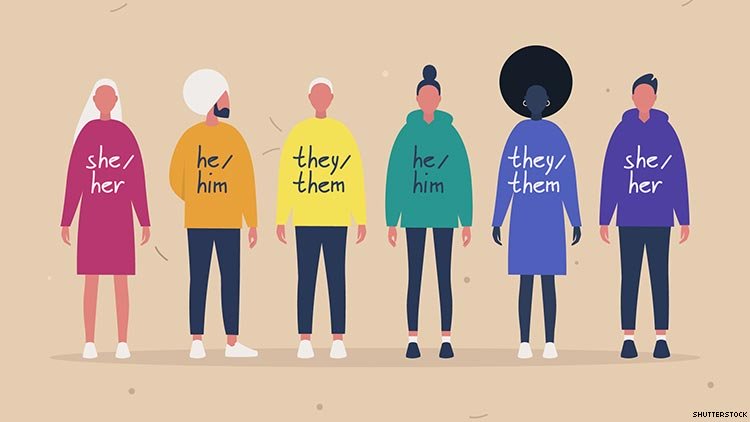Announcing “They”

Why? Because necessity is the mother of adoption, and while debate about the word may seem new, singular they has been on an “inexorable forward march…”
Time Magazine, January 17, 2020
I have a confession to make. I realized that I needed to write this post when I struggled to be trans-inclusive while writing a blog post a few weeks ago. In particular, I worried that readers would think my use of “they” instead of gender specific pronouns was a grammar error. Yes, I know that the singular use of they has increased, but it still felt unnatural to me. I felt I needed to include a disclosure statement; but that, too, felt awkward and like posturing.
Bear in mind that when I conduct anti-harassment training, the area where I get the greatest amount of push-back is gender identity and sexual orientation. The more male-dominated the organization is, the more transphobic and homophobic the culture tends to be. More specifically, the most often expressed reason for rejecting trans-inclusiveness is that the trans person will regularly switch identities which will force their colleagues to keep checking in about how they should interact. First, this isn’t likely to occur (that’s not how gender identity works). Second, some employees really do believe that learning and respecting another person’s preferences requires too much effort, especially if they knew the person before the transition. Thus, I didn’t want to be one more person who subjected trans people to behavior that made them feel like their very existence was burdensome, something to be discussed, or something requiring approval. Nevertheless, I was still reminded of the need to be inclusive every time I typed they instead of he or she. Even as I was doing it, using “they” more seamlessly, there were times when I caught myself needing to revise my document for consistency.
Then, I had an “aha” and knew that I’d share this experience because it epitomizes why I encourage leaders to clearly communicate their goals, values, and any changes thereto.
Communication is a form of accountability. Once you put it out there, you know your team will be watching more closely for consistency. Yes, you may mess up, but you can and need to address those mistakes. Further, when you own your mistakes, you become less and less likely to keep repeating them and you demonstrate higher levels of empathy for other. Then, I had a second aha and realized that I have plenty of practice engaging people in ways that make them feel respected. Personally, I resent using handles like “Ms. Jones, Sister Bernice, and Cousin Tony” when I address older people. Frankly, I’m middle-aged and don’t see why that is necessary. Despite disliking the tradition, I’ve trained myself to ask older people with whom I interact often how they’d like me to address them. Consistently, I am floored at how many of them don’t ask to be called Mr. or Ms. I also accepted that referring to someone according to their preferences does not diminish me; thus, if Dorothy wants to be called Ms. Bedden, I will call her that. She doesn’t owe me an explanation about why she prefers to be Ms. Bedden. By the same token, unless you have explicit permission, I’m Mylena, not “My” or “My My” or “Mylaina”, and I expect you to get it right. The thing that I realized most was that the very fact that I asked their preference made them feel seen and respected, which paved the way for better interactions.
While Grammarly and Merriam Webster have taken formal positions on the acceptability of formally using they as a singular pronoun, I want to encourage leaders to adopt the practice because it will support employee engagement, strengthen your reputation as a leader who can take a stand (especially in a non-inclusives culture), and it’s the law.
#organizationculture #leadership #lgbtqia #psychologicalsafety #eeo #antiharassmenttraining #selfawareness #emotionalintelligence



